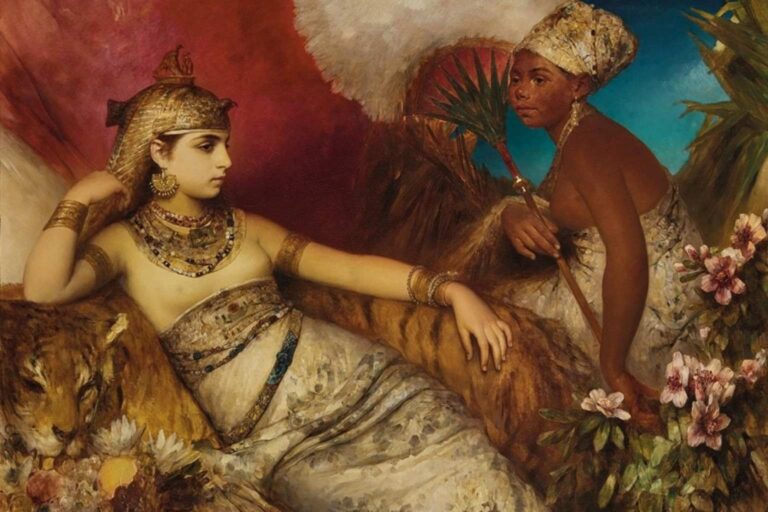You might think that cultural taboos are bizarre, outdated, and even illogical! Well, if you pause and dig into their backstories, you’ll be surprised! What looks like superstition is actually a survival strategy, social order, or really clever public health policy in disguise.
Every society has its own unwritten rules—mystical no-nos and sacred “don’ts” that are treated like gospel, even if no one can explain why. But remember, these are not random quirks. Many of them are actually a genius blend of psychology, religion, science, and folklore.
So, before you roll your eyes the next time, take a moment to explore the historical logic behind these traditions. Here are five seemingly strange taboos from around the world that actually make perfect sense once you understand their cultural roots.
1. Cutting nails at night
Across various cultures, cutting nails after sunset is considered a serious cultural taboo, and not without reason. In Japanese folklore, trimming nails post-sunset could invite bakeneko (a supernatural cat spirit) or even bring early death. In fact, the phrase “cutting nails at night” sounds similar to “short life” in Japanese, signifying that it leads to misfortune and early death.
Similarly, even Indians say that cutting nails after dark displeases Lakshmi, the goddess of wealth, potentially driving prosperity away and disrupting body balance. In China, folklore warns that spirits collect your clippings for black magic if done at night. Even in Korea, they say that if you leave the clippings on the ground, rats may eat them and gain the power to transform into you or steal your soul.
Why It Makes Sense:
- Poor visibility and accidents: The real logic was that without light (especially in the pre-electricity era), the chances of bleeding increase when using sharp objects for manual trimming.
- Hygiene and infection: Scattered nails can lead to the spread of bacteria and fungi and contaminate food.
- Psychological anchoring: Nail cutting may also symbolize renewal, shedding, or release (actions often tied to daylight rituals). By prohibiting these acts at night, people were gently encouraged to keep daily routines structured and mentally anchored in circadian rhythm.
2. Touching the dead
Touching a dead body is considered spiritually dangerous and outright forbidden in so many cultures. It’s one of the most deeply ingrained cultural taboo examples passed down through generations. In Hinduism, all those who perform last rites are told to take a bath and change clothes before rejoining household life.
Similarly, in Judaism, contact with a corpse makes one tamei (ritually impure), requiring special rites for cleansing. In ancient Egypt, all the priests who performed mummification wore special masks and attire to spiritually shield their ka (soul essence) from the energies of death. And in Japanese Shinto beliefs, too, death is considered a form of kegare (impurity). Those who interact with the dead must undergo ritual cleansing (misogi) before participating in normal community life again.
Why It Makes Sense:
- Health risks: It was actually a form of disease control. People instinctively understood that contact with dead bodies (especially in the case of plague/infection) could lead to illness and contamination.
- Psychological impact: Touching a corpse could lead to intense mental trauma, especially in children and those who are not accustomed to death. Cultural taboos helped societies manage this shock through ritual and distancing.
- Community safety: A few people were assigned for last rites to avoid spreading panic in the community and minimize public health risks.
RELATED READING: 10 Self-Jeopardizing Lies We Tell Ourselves
3. Using your left hand for social interactions
My parents always told me, “Don’t eat or shake hands with the left”! In fact, my brother naturally wrote with his left hand and was once forced to switch to his right. In Hindu culture, touching food, communal water vessels, or elders with the left hand is considered quite disrespectful.
In Islam, too, this separation of hands is deeply embedded in taboos in religion. The Prophet Muhammad is reported to have said, “When any one of you eats, let him eat with his right hand, and when he drinks, let him drink with his right hand. For Satan eats and drinks with his left hand.”
Fun fact about the English language: The word “left” comes from the old English word “lyft”, which means “weak or useless” and the Latin word “sinistra”, meaning “unlucky/evil”.
Why It Makes Sense:
- Cross-contamination prevention: Hands transfer bacteria, especially fecal-oral pathogens, quickly, and it can lead to some serious diseases. Even the WHO recommends that hand hygiene is essential to prevent cross-contamination.
- Cultural evolution of hygiene practices: The taboo evolved naturally, assigning one hand to “dirty jobs,” and protecting the other for eating and interactions. It’s an adaptive hygienic system before soap and water were common.
4. Sweeping after sunset
Ever been told to drop that broom once the sun goes down? In many South Asian households, this isn’t just a quirky household rule; it’s a deeply rooted taboo for the culture. I asked my grandfather once why he is so adamant about this belief. And he gave me a response, “You’ll sweep away your wealth!”
According to the Hindu tradition, Goddess Lakshmi (the divine figure of prosperity) enters the home after dusk. This happens especially during auspicious festivals like Diwali, and sweeping after sunset is believed to chase her away.
And now, this belief is so ingrained in the South Asian psyche that brooms are literally put away for the night. You might even get a gentle scolding or worried glance for doing so.
Why It Makes Sense:
- Visibility = Risk of loss: Since there was no electricity, sweeping in candlelight/firelight was quite risky because valuable items like jewelry, money, or food could get swept away with the debris.
- Loss aversion: According to psychologists, the emotional sting of losing something valuable is significantly more intense than that of gains, often twice as powerful. And this could lead to extreme mistrust in households where resources were so limited. It would then become a blame game. Who swept last? Who lost it?
5. Discussing wealth
Among the most invisible yet strictly followed cultural taboos in America is this unspoken rule: don’t talk too much about money, especially in polite company. Of course, no one will be arrested for saying these things, but you’ll definitely get a side eye or a judgmental look!
In the Victorian era, modesty was more than just a virtue; it was a social currency. Anyone who talked about wealth was considered ‘vulgar’ and not so ‘classy’. Then, in early capitalist society, modesty became a shield. Bragging about money could lead to envy, resentment, or even theft!
But when capitalism matured, the American Dream emerged: anyone could succeed, but success had to look effortless and humble. So, everyone was really always working hard for financial liberation. But ironically, no one could express it in public…So, money became an interesting paradox of the American psyche; everyone desired and pursued it, but no one could flaunt it!
Why It Makes Sense:
- Money scripts: We all inherit financial behavior/”money” scripts. So, some people think talking about money is rude and dangerous. Some feel shame while others feel superior, depending on how much money they comparatively make. Hence, this taboo was born in society to avoid awkward power dynamics and regulate emotional control.
- Materialism and well-being: According to a study, those who are ‘materialistic’ are more likely to compare themselves to others. This becomes a toxic loop of unrealistic standards because no matter how much you have, it still feels less. So, the taboo of not revealing wealth was actually a psychological protection.
Honorable Mentions (With Science!)
If the main list hasn’t already blown your mind, let’s do a bonus round of time-tested life hacks, wrapped in ritual. These quirky taboos actually make a lot of sense when you factor in the science. They are designed not just to uphold tradition, but to keep people safe, clean, and occasionally… out of trouble:
- Don’t blow your nose in public (East Asia): Nose-blowing sprays droplets up to 8 feet; social quiet solves hygiene and comfort issues.
- Hanging lemons and chillies at the door (South Asia): Since they emit pungent scents and contain compounds with insecticidal properties, they repel pests and protect food.
- Avoiding solar eclipses (worldwide): Risks include eclipse blindness and permanent retinal damage from staring at the sun.
- Don’t break a mirror (Europe, West): Ancient mirrors were rare and expensive; breaking one was costly, and later imbued with spiritual misfortune ideas.
- Black cat crossing your path (Europe, U.S, Latin America): In darkness, cats crossing roads scared horses/carts, a real safety concern in pre-vehicle eras.
- No haircuts on Tuesdays/Thursdays/Saturdays (South Asia): Likely tied to barber schedules and water scarcity logistics for rural societies.
Finally, our bored ancestors were not on a quest to make our lives miserable and complicated by imposing cultural taboos on us! Many of those taboos are actually cheat codes that came as a result of collective wisdom and lived experience, so, what you think of as magic might have originated as an emotional seatbelt for society, wrapped in layers of psychology.
And hey, maybe that’s the real lesson here: Behind every “don’t,” there’s usually a very good “why.” Hence, when you come across such a taboo, try digging into its backstory. It will not just make you more informed but also more connected to the vast, weird, brilliant, emotionally complex human family you’re part of. Go ahead, break a taboo if you must. But at least know what it was trying to protect.




